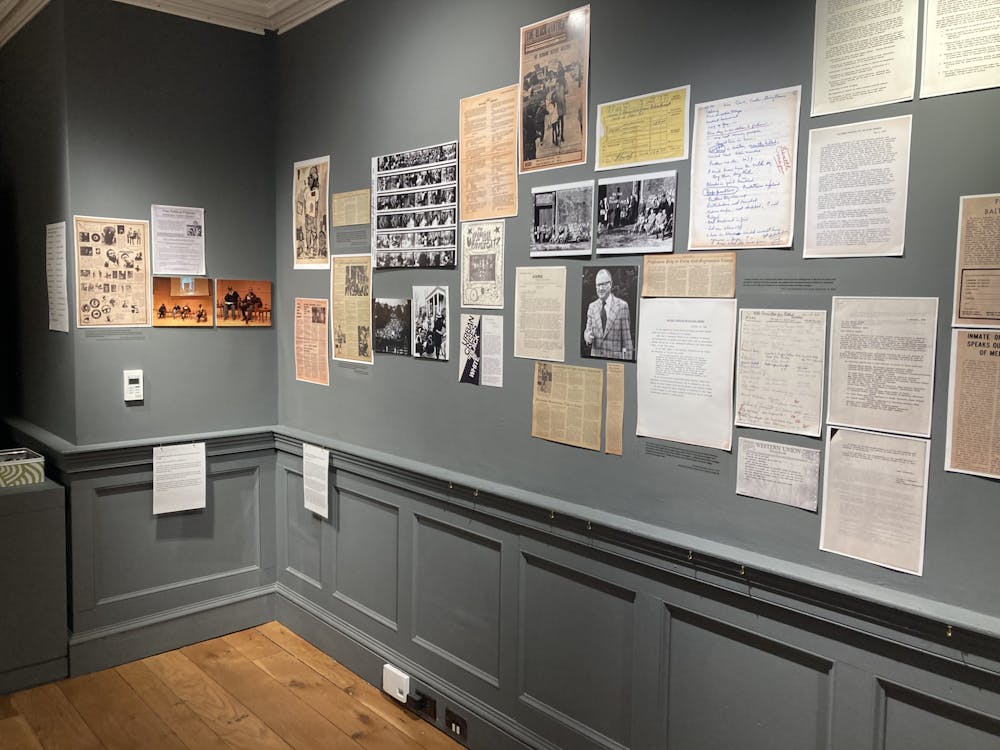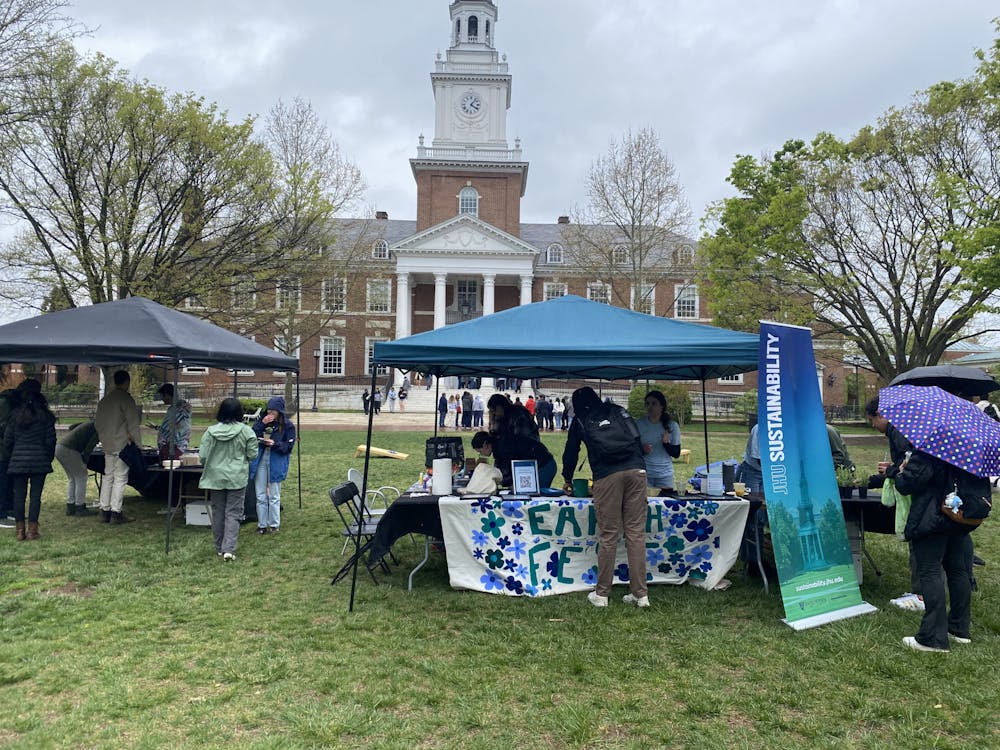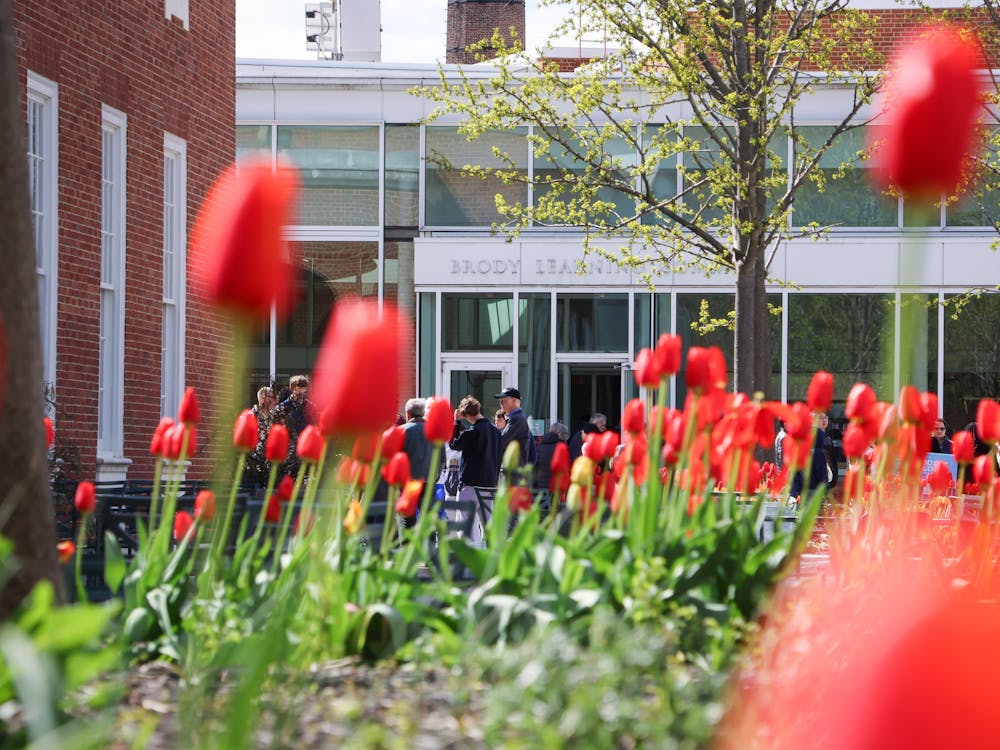The Office of Student Leadership and Involvement (SLI) announced at the beginning of last semester that, due to limitations enacted by the Center for Social Concern (CSC) and the Homewood Arts Program (HAP), they would prohibit students from forming new performing arts and local community service groups for this academic year.
According to HAP Director Eric Beatty, it is plausible that the ban on new performing arts groups will carry into the 2018-19 academic year because of insufficient time and space for rehearsals and performances. He cited the delayed renovations of Shriver Hall, which serves as a performance venue, as an added difficulty.
JHU Sirens President Isabella Zellerbach shared the difficulties her a cappella group faces in finding performance and practice space.
“There are only a few locations on campus that are large enough... for end-of-year a cappella concerts,” she wrote in an email to The News-Letter. “We usually begin our end-of-semester concerts sometime during early or mid-April, which gives some groups less time than others to prepare.”
HAP will decide over the summer whether or not it will extend the ban.
The CSC, however, has constructed a new system for the registration process of community service student groups, which have been renamed “student initiatives.” According to CSC Associate Director Gia Grier McGinnis, framing them as such better illustrates the CSC’s diverse service offerings.
There are three categories of student initiatives: groups which perform regular, direct community service, groups that hold semesterly or annual service events, and Baltimore First Individualized Direct Service Sites, where individuals partner with service organizations in Baltimore.
According to the program’s website, the third option aims to foster student volunteerism with community partners, and Grier McGinnis explained that all three permit the CSC to provide better advising and training to group members.
“We are also restructuring advising support to align with these areas,” she wrote in an email to The News-Letter. “Our new Program Coordinator for Student Leadership and Development was recently hired to advise just event-based student groups and to build out individualized service, while other CSC staff will continue to advise our other service organizations. This will allow for more tailored advising for all organizations.”
Senior Ami Mange founded Hopkins Undergraduates for Harm Reduction (HUHR), a club which seeks to spread awareness about harm reduction practices for substance abuse. She discussed how her experience founding HUHR, of which she is now president, illuminates the benefit of the new classification and advising system.
“When we registered as a group... we wanted to train community members on how to administer Naloxone to reverse opioid overdose,” she said. “Obviously, students going out and almost giving clinical training to community members holds a lot of inherent liability, and we understand that, but it greatly limited the kind of things we could do... [The CSC] hinted at us becoming more specialized in advocacy, which gave us something to work with.”
She added that specialization can help a group hone its mission statement and determine and make more meaningful the kind of work in which it seeks to engage.
Grier McGinnis believes that the Civic Engagement Recognition and Allocations Commission, which comprises five students and two staff members, will approve new initiatives and enhance the funding process.
“In addition to the three-pronged system, the Civic Engagement Commission will eventually be able to offer small grants for some of the student activity that our direct service endowment cannot cover, such as issue-based educational events on campus,” she wrote. “This is something students have been asking for.”
According to Grier McGinnis, new groups will be funded via the France Merrick Foundation endowment for community service.
Beatty explained in an email to The News-Letter that because HAP has accepted three new performing arts groups each year for many consecutive years, it has reached its capacity to allot spaces to maintain such growth. There are currently 22 dance groups and 12 a cappella groups.
“Due to Shriver being closed in Fall [2018] and no new performing arts spaces being added this year, it is possible that we will have to continue the hiatus on new performing arts groups for another year,” he wrote.
Freshman Becky Shade was disappointed to learn that the ban on new performing arts groups would not be lifted. She believes that it is close-minded for administrators to assume that new groups would not be able to use classrooms or other spaces not designed specifically for practice or performances.
Shade said that she was interested in founding a chapter of Destination Imagination (DI), a creative problem-solving and teamwork-oriented organization that integrates STEM and the arts.
She also noted that DI could serve to bridge the gap between the humanities and STEM at Hopkins.
“DI would be a good way to bring those students together to create projects that value each equally,” she said. “Hopkins needs to put their money where their mouth is, so to speak, and show that we need to value the arts as much as STEM and recognize that... collaborating between the two fields is something with which students should be more involved.”
Beatty identified a limited number of dates for groups to perform as another reason behind the continued restrictions. HAP tries to schedule shows such that they do not directly overlap each other or events in the spring, such as Alumni Weekend and Spring Fair.
Shade argued that this concern is illegitimate; because her proposed group functions at an interscholastic level, each performance would occur on an off-campus location. She wishes that administrators would take the individual requirements and requests of potential new groups into consideration.
Freshman Class President Sam Schatmeyer echoed Shade’s sentiments in an email to The News-Letter.
“As a general principle, innovative student groups on campus should never be discouraged so long as they have a well thought out plan of action,” he wrote.
Grier McGinnis urges students to communicate with CSC staff and to take advantage of information sessions so that they will benefit fully from the new system.
Senior Brandon Yu, who is the co-president of Habitat for Humanity, agrees with Mange that the CSC helps student groups eliminate liability issues. He believes that the Civic Engagement Recognition and Allocations Commission will lend the CSC more flexibility in giving cash to different clubs at more useful times.
However, he shared his apprehensions about new regulations for funding student groups.
“It could be a way to start diverting funds away from clubs or starting to pull back overall,” he said.
Edit: The original article originally indicated that Isabella Zellerbach’s were spoken when in fact they were written an email to The News-Letter.
















Please note All comments are eligible for publication in The News-Letter.